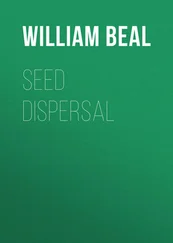“You know you can’t,” Raphaella said.
As if suddenly starved of oxygen, the flames around her shrank, flickered, and died, leaving no marks on the floor.
Raphaella looked my way.
So did Savonarola.
I knew what I had to do, but he was way ahead of me. I scrambled among the jumble of volumes on the floor, hurling them this way and that, glimpsed the sparkle of a red jewel against a gold background, and hauled the heavy cross out of the pile. Fumbling in my pocket, I yanked out my knife and opened it, my hands trembling violently.
“Garnet, look out!”
Savonarola flowed toward me as fire veined from his robes and across the floor, like lava seeping from a volcano. I jabbed at the clips holding the glass dome to the base of the cross. In my frenzy, I broke two of them. Pried up the others. Thumbed the dome free. It clattered across the floor. With fire searing the bottom of my feet, I snatched the atlas from its cavity in the base of the cross.
I clawed my way toward the fireplace, the stench of the spectre in my nostrils, the searing fire around me, the five-centuries-old bone clutched in my hand. I heard Raphaella scream a warning, felt myself snatched into the air and hurled forward. I slammed against the mantel and fell to the hearth, knocking the screen aside. The fire scorched my face, singing my eyebrows. I thrust my hand over the flames and dropped the bone into the heart of the fire.
A prolonged, ear-splitting howl of rage and despair battered the room.
From behind, something grabbed me, pinning my arms, and hauled me away from the fire. I fought back with the little strength I had left.
“Garnet!”
It was Raphaella, holding me in her arms. We stared into the fire, at the bone resting on the coals in the centre of a forest of flame, afraid that if we took our eyes off it, the atlas would disappear. It smoked, glowed reddish orange for a few seconds, turned white hot, seemed to quiver. Then it flared and died and crumbled to a powdery ash and was lost among the coals.
Together, we felt the weight of his presence behind us. Still on our knees, we turned. He was in the centre of the room, a black cloud of evil, arms raised, his bony fingers pointing accusingly at us. Books cascaded from the wall behind him and thundered to the floor. The window imploded, showering us with glass. Savonarola glowered at us, his distended eyes wide, his devastated face twisted with frustration and hatred and rage, his ravaged mouth a black oval as he bellowed again. He glided in our direction on a raging sheet of fire. But as he crept forward, the fire’s intensity was already waning. His body began to lose power and substance, its colour fading. His physical presence wavered and then he seemed to dissolve like cooling vapour into the air around him, until he was gone.
Raphaella and I embraced like two shipwrecked sailors clinging to each other for life and warmth, the upended furniture, disintegrated window glass, and Professor Corbizzi’s books strewn like flotsam on a beach. We looked around the room-the evidence of violence everywhere-searching, not quite believing our eyes.
“He’s gone,” I whispered.
“Gone for good now, I think.”
“And he didn’t get the professor’s manuscript.”
WIND AND RAIN GUSTED into the room through the damaged window, clearing and freshening the air. The fire in the grate had dropped to embers. A thought struck Raphaella and me at the same time.
“Mrs. Stoppini!”
“I’ll go,” I said, jumping to my feet.
I took the stairs two at a time, ran down the carpeted hall toward her suite. Her door was ajar. Out of habit, without thinking, I slowed to a walk, stopped at her threshold, and put my head through the door. I could see the foot of her bed. Two black-stockinged feet, soles toward me, unmoving.
She was snoring softly and rhythmically. She had slept through everything. I retraced my steps to the library, slowly and quietly this time, and closed the doors behind me. If she woke up, I didn’t want her to see the room as it was.
Raphaella had gathered a few rugs from around the library and spread them over the fallen books under the windowsill to protect them from the rain. We brought sheets of plywood from the workshop and nailed them over the destroyed windows. I retrieved a metal bucket, a dustpan, and a brush from the garden shed, and we went into the house again.
“I won’t feel confident that he’s really gone until I do this,” I said, scooping up the embers and ash from the fireplace, brushing up all the dust, and dumping it into the pail.
When Raphaella was satisfied that not a molecule had been left behind, I carried the pail outside and dug a hole behind the shop and dumped in the ashes. I trudged across the sodden lawn to the lake, scooped up some water, lugged the pail back to the hole, swirled the water around the inside of the pail, then poured it into the hole.
“Let there be no remains to tempt the relic hunters,” I murmured as I filled in the hole and tamped down the dirt with a shovel.
Back in the library, Raphaella had begun to pick up books and stack them on the trestle tables. The entire alcove had been stripped, along with a couple of hundred volumes from the south and east wall. I hauled the crate back onto the table, then picked up the cross and reattached the glass dome, bending the unbroken clips into place. I fitted the cross inside, pushed the packing material into place, and screwed on the lid.
“The rain’s let up,” I said. “Maybe we’ll see the sun today after all.”
Raphaella plunked an armful of books on the table and forced a smile. “I think we can put everything back in a couple of hours,” she said. “We already have the columns labelled, so we can organize the books by topic first, then alphabetically, then reshelve them. I-”
“Stop.” I took hold of her hands. “We’re okay,” I reassured her, seeing the frenetic energy in her eyes, the aftereffects of our ordeal. “We came through it. It’s over.”
Raphaella began to cry-first tears, like the patter of rain that heralds a storm, then a full-on gale of sobbing. I held her tightly, holding back aftershocks of my own, blinking away the image of Raphaella on her back on the floor, encircled by flames.
“I thought I was going to lose you,” she spluttered against my chest, “when you were down and he went after you.”
“It takes more than an ugly little monk with a bad attitude to put me out of commission. Even a firebug like him.”
Raphaella laughed. Sort of. “We ended up burning him after all,” she said, wiping her eyes with the heels of her palms.
A ring sounded.
“What was that?” she exclaimed.
“My stupid cellphone.”
“I do apologize, Mr. Havelock, for failing to provide your afternoon refreshment,” Mrs. Stoppini said, a little flustered. “I was reading in my room and must have dozed off. I slept the afternoon away!” There was a moment’s silence as Mrs. Stoppini composed herself. “I shall have tea ready in seventeen minutes.”
Mrs. Stoppini didn’t seem upset when we told her about the library window. “I didn’t realize the wind was that strong” was all she said.
She told us she’d call a glazier to have it repaired as soon as possible. She’d also contact the shipping company to pick up the crate, which Raphaella and I had carried to the foyer at the front of the house. After a quick cup of tea Raphaella and I returned to the library and got to work putting the place back in order.
“Let’s take a break,” I suggested after an hour or so. I led Raphaella to the chairs by the fireplace. “I’ve been thinking,” I said.
Throughout the afternoon something had been scratching away at the back of my mind, like a mouse in the attic. I had been reviewing the battle with Savonarola’s ghost. Not that I had wanted to. I couldn’t help it. But there was something I couldn’t explain. It seemed that when the spectre was about to burn Raphaella, somehow she had warded him off. How?
Читать дальше












